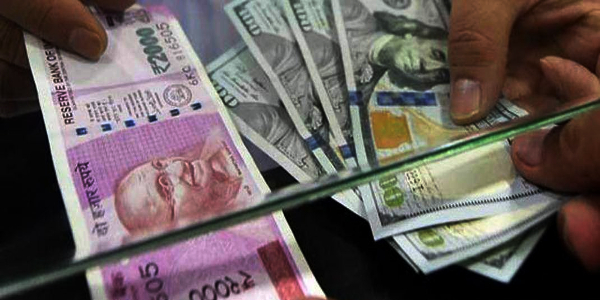India’s only international financial hub is seeking to seize a major part of the offshore rupee trading business within two years, a target that is both ambitious as well as crucial for its plan to be an alternative global financial gateway.
Prime Minister Narendra Modi wants to pitch India as a new Asian destination for global fund flows rivaling the likes of Singapore and Hong Kong. The move comes amid Bejing’s muscle-flexing in Hong Kong through a new national security law that threatens to undermine the city’s role as a regional financial center.
“One of the key elements that work in our favor is that there is overall stability in India,” Tapan Ray, managing director and group chief executive of Gujarat International Financial Tech City, wrote in an email interview. “There is predictability in policy.”
The centerpiece of Modi’s pet project, conceived when he was chief minister of Gujarat state, offers flexibility in financial transactions with lower taxes and easier regulations than elsewhere in the country. India’s policymakers have been increasingly concerned about the growing heft of the rupee trades in venues overseas, and GIFT City as the hub is known, seeks to fill that gap.
The hub offers trading in equities, currencies and commodities, as well as listing of international bonds. Exchanges located there started trading rupee derivatives settled in foreign currencies in May. Subsequently, banks who had units in the hub were allowed by the central bank to trade in offshore FX markets.
Tough Rivals
Yet, going by current numbers, GIFT City’s targets looks aspirational. A hub like Singapore offers an investor access to all major currencies and more counter parties.
The average daily volume for the rupee in London totaled $47 billion in April 2019, while that in Singapore was nearly at $20 billion, according to the latest data from the Bank for International Settlements. In contrast, total rupee derivative volumes over a month at GIFT City stood at about $6 billion.
Standard Chartered Plc, HSBC Holdings Plc and other U.S.-based banks have either set up or are in the process of building their operations in GIFT City, according to Ray.
Other lenders from the U.S., Japan and Europe are also actively considering setting up units, he said. Developing local clearing for foreign currencies trading is also on the agenda, and a new mechanism for real-time settlement of transactions should be in place soon, he said.
However, skeptics say it will take more than cost advantages to bring investors to GIFT City.
“If I was a hedge fund operating out of Singapore or in Hong Kong then I know in the back of my mind that effectively GIFT is under India even though it is an international jurisdiction,” said Ananth Narayan, a professor of finance and former South Asia head of financial markets at Standard Chartered. “Which means Indian regulators would have access to what I am doing.”
Source: LiveMint
You may also like
-
Trade Connect E-platform For Exports Is Single Window, Fast, Accessible And Transformational: Shri Piyush Goyal
-
Dot Simplifies Approval Processes For Telecom Licenses And Wireless Equipment
-
Coal Production and Supply Trends on Positive Trajectory
-
Union Minister To Release Booklets On Promotion Of Indigenous Species & Conservation Of States Fishes
-
2nd India-Japan Finance Dialogue held in Tokyo on 6th September, 2024
